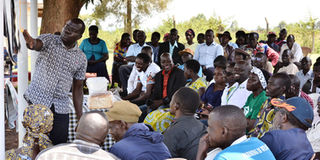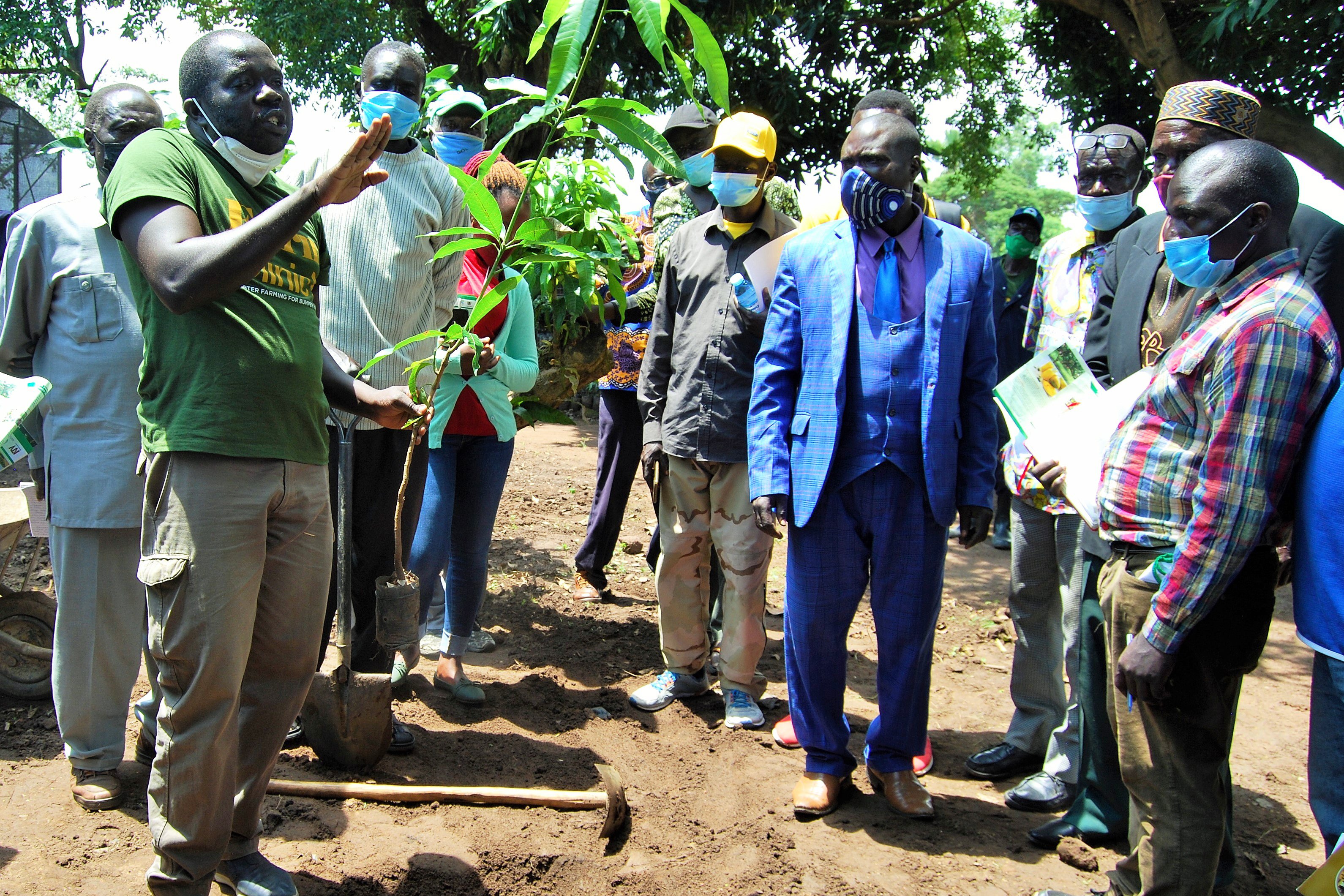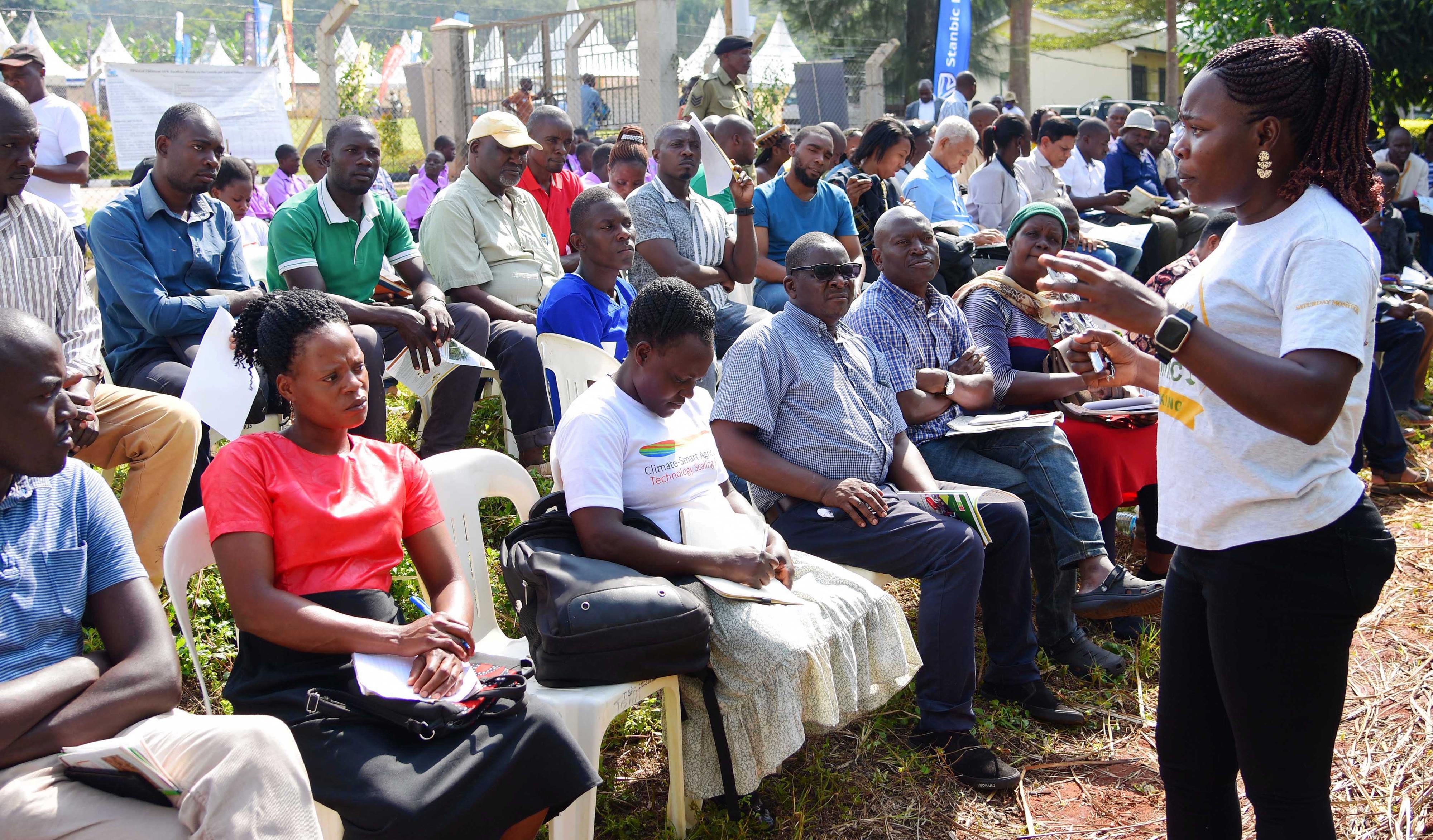Thank you Arua for embracing the Farm Clinic

Attentive farmers engrossed in cassava training absorb valuable knowledge. Photos | George Katongole
What you need to know:
- Engagement between the farmers and experts has become more intense with the former now saying they are farming from a point of information. It affirms our commitment to scale the Seeds of Gold farm clinics to everywhere in the country.
Arua witnessed a successful day-long event as students, farmers, agro-suppliers, researchers, and political leaders converged for the Seeds of Gold farm clinic at ABI Zonal Agricultural Research and Development Institute.
The event, a collaborative effort between the National Agricultural Research Organisation (Naro) and the Nation Media Group - Uganda (NMG - U), highlighted the imperative of research-based agricultural practices in the face of changing climate.
Dr Sadik Kassim, Naro’s deputy director general of agriculture technology promotion, emphasised the pivotal role research plays in resolving major agricultural challenges by enhancing crop and livestock productivity.
Naro, established by Parliament in 2005, teams up with NMG-U annually for the Seeds of Gold farm clinic across Naro institutes nationwide.
The three main pillars of Naro’s efforts include generating production technology, releasing new varieties through research extension farmer interactions, and strengthening institutional capacity via competitive grants schemes.
While Naro has excelled in technology development, the challenge has been disseminating this information to farmers. Dr Kassim praised the farm clinic for bridging this gap.
“Through the farm clinic, we are presented with an opportunity to connect with a wider range of farmers and illustrate the potential accomplishments attainable by embracing research findings. This knowledge stands to not only enhance their production capabilities but also elevate their income,” Dr Kassim said.
Facing climate change
Uganda’s vulnerability to climate change and global challenges is evident, ranking 166 out of 181 on the ND-GAIN Index. The ND-GAIN Country Index, a project of the University of Notre Dame Global Adaptation Initiative (ND-GAIN), summarises a country’s vulnerability to climate change.

Farmers get introduced to Naro researchers from ABI Zonal Agricultural Research and Development Institute, fostering knowledge exchange at the Farm Clinic.
Agriculture is a major employer, employing 73 percent of Uganda’s population, mainly in rural areas. However, slow transformation has resulted in low productivity compared to neighbouring countries, contributing just 21.9 percent to the GDP in 2018/20. Factors include limited input use, weak infrastructure, and low mechanisation. Inorganic fertiliser usage is minimal, with low rates of irrigation and improved seed adoption.
The agriculture sector’s performance fluctuates due to insufficient climate change adaptation adoption, impacting economic growth and Uganda’s goal of middle-income status by 2040. Climate change effects such as droughts, floods, and increased pests challenge the sector. The 2016 drought, for instance, reduced output, slowing growth to 3.9 percent and raising poverty from 19.7 to 21.4 percent in 2016/17.
Dr Kassim said adoption of climate-smart agricultural practices can be obtained through interactions such as the farm clinic.
Unlocking agricultural finance challenges
Uganda’s agricultural sector faces financing hurdles, with only 11.3 percent of agricultural households accessing credit at the national level. Informal sources provide 61 percent of this credit, semi-informal sources 29 percent, and formal financial institutions just 10 percent. Despite rural adults having relatively widespread access to loans, demand for agricultural loans remains low, potentially due to the perceived risk. Alex Rwanja, deputy director at Bank of Uganda, highlighted the Agricultural Credit Facility (ACF) as a solution. The ACF, established in partnership with commercial banks, facilitates medium and long-term financing for agricultural and agro-processing projects.

The vibrant exhibition tent of Omia Agribusiness Development Group, who offer essential agricultural services to farmers in northern Uganda.
Stanbic Bank, present at the event, showcased their Agri Finance Loans designed to support the entire agriculture value chain.
Enhancing knowledge and solutions
Other contributors at the event included Export Trading Group (ETG), addressing the knowledge gap between agro-input dealers and farmers. Gilbert Kato, senior sales agronomist/technical country manager, emphasised the need for updated knowledge on improved farming practices among agro-input dealers to enhance farm productivity. Heifer International Uganda, a new partner, offered applicable solutions in the agriculture value chain amidst climate change. The organisation focuses on mobilising farmers into cooperatives to enhance knowledge sharing and access to financial services.
The next farm c linic is scheduled for Hoima next month, promising further engagement and knowledge dissemination for the agricultural community.




